Is your baby’s skin reacting to regular laundry detergents?
Picture this: you’ve just lovingly washed a fresh batch of baby clothes. Tiny onesies, soft swaddles, those impossibly cute socks. You hold them to your face — they smell clean, but within a day or two, your baby’s delicate skin is covered in red patches or tiny bumps. Oof. It’s heartbreaking, right?
If you’ve been there, you’re not alone. Baby skin is super sensitive — like, “handle with velvet gloves” sensitive. And believe it or not, regular laundry detergents can be way too harsh for your little one’s skin. That’s where baby detergents come in. They’re specially designed to be gentle, hypoallergenic, and free of all those strong chemicals and fragrances that can irritate sensitive skin.
But here’s the kicker: not all “baby” detergents are created equal. Some are amazing and safe for newborns with allergies or eczema. Others? Not so much. So how do you know which ones are actually good and which ones just look pretty on the shelf?
Whether you’re knee-deep in onesies as a brand-new parent or you’re just looking to swap out your usual detergent for something gentler, you’re in the right place. This guide’s got your back. We’ll break down what actually matters when picking a baby-friendly detergent, what to steer clear of, and how to find the right fit for your little one’s delicate skin.
Let’s get into it — and don’t worry, we’ll keep it real, warm, and helpful the whole way through.
Why You Need a Special Baby Detergent

Okay, so here’s the thing — baby skin isn’t just a tinier version of ours. It’s thinner, more absorbent, and still developing its natural protective barrier. That means anything that touches it — especially something like detergent that clings to clothes — has a bigger impact. And unfortunately, most regular detergents? They’re loaded with dyes, artificial fragrances, and other stuff that can really upset baby’s skin.
What makes baby detergents different from regular detergents?
Think of baby detergents like a cozy blanket for your laundry. They’re formulated to be ultra-gentle — free from harsh chemicals, free from synthetic scents that smell like a perfume aisle exploded, and often hypoallergenic. Many are even dermatologist-tested or recommended by pediatricians. They clean effectively without leaving behind any nasty residue that could irritate your little one’s skin.
Fragrance-free vs. scented
Now, let’s talk about smells — because who doesn’t love the scent of fresh laundry? But when it comes to baby detergents, fragrance can be a double-edged sword. Fragrance-free is usually the safer bet, especially for newborns or babies with extra-sensitive skin. If you do want a little scent, try to stick with natural, non-irritating ones. Better safe than sorry, right?
Ingredients to avoid (e.g., dyes, sulfates)
Here’s a quick list of what to steer clear of: dyes (which do nothing but add color), sulfates (like SLS, which can be super drying), parabens, optical brighteners, and anything labeled “antibacterial” — that last one can mess with your baby’s microbiome. If you see those on the label, it’s a red flag.
Are baby detergents really necessary?
You might be wondering — do I really need a separate detergent just for baby clothes? It depends. If your baby has shown signs of skin irritation or allergies, then yes, absolutely. Even if not, using a gentler detergent from the get-go can prevent problems before they start. Some families even switch the whole household over to baby-safe detergent just to simplify things!
Pediatrician recommendations
Many pediatricians recommend starting with a baby detergent for at least the first year. Baby skin is still developing, and playing it safe with a gentle formula is just one way to minimize potential irritation.
Real parent stories and experiences
Let me tell you — I’ve heard so many stories from parents who tried everything before realizing it was their detergent causing the problem. One mom I know thought her baby had a food allergy, only to find out it was a detergent reaction. The moment she switched to a hypoallergenic baby brand, the rash disappeared. Wild, right?
How to spot allergic reactions from detergent use
Not all reactions are instant or obvious. Some babies get dry patches, others might have a little redness that comes and goes. It can even look like baby acne or cradle cap. If you notice any consistent skin changes after laundry day, it might be worth doing a little detergent detective work.
Rash, dryness, hives — what to watch for
Look out for red patches, itchy spots, raised bumps, or general fussiness when wearing freshly washed clothes. Baby can’t exactly tell you what’s wrong — but their skin will usually give you a clue!
When to consult a pediatrician
If you’ve already tried switching detergents and your baby’s skin is still flaring up — or getting worse — it’s time to check in with your pediatrician. They’ll help figure out whether the detergent’s to blame or if something else is going on. For stubborn cases, they might even refer you to a dermatologist to get to the root of it.
Best Baby Detergents for Newborns

Newborns — soft, sleepy, and wrapped in tiny onesies. Their skin? Even more delicate than it seems. So doing laundry isn’t just about fresh clothes — it’s about keeping that baby-soft skin safe, too. Choosing the right baby detergent can seriously impact your little one’s comfort, sleep, and let’s be honest — their mood. Because no one sleeps well with itchy pajamas, especially not a newborn.
What’s safest for newborn skin?
In those early months, stick with detergents that are free from fragrances, dyes, and unnecessary additives. Aim for ones labeled hypoallergenic — bonus points if they’re pediatrician-approved or dermatologist-tested. These tend to be gentler and are specifically made for sensitive baby skin.
Hypoallergenic formulas
Detergents made with plant-based ingredients and no harsh extras (think sulfates or artificial brighteners) are a smart pick. Hypoallergenic options help reduce the chance of irritation or allergic reactions — a lifesaver if your baby’s skin leans toward the sensitive side or you’re managing early signs of eczema.
Top picks tested by dermatologists and pediatricians
Some popular favorites that consistently rank high with both parents and professionals include:
- Seventh Generation Baby – gentle, plant-based, and fragrance-free
- Dreft Stage 1: Newborn – a classic, trusted by generations, though it’s scented (so test first!)
- ATTITUDE Little Ones – made with worry-free ingredients, EWG Verified
- Babyganics 3X Baby Detergent – pediatrician and dermatologist tested, fragrance-free
If you want to dig deeper into what makes a detergent “clean,” check out this helpful guide on EWG’s cleaner ratings — it’s an amazing resource for figuring out what’s actually in the bottle.
Should I choose liquid or pods for babies?
Here’s a question I get a lot: is liquid better than pods? Honestly, for baby clothes, liquid detergent is usually the safest choice. Why? Because it gives you more control over how much you’re using, and it rinses out more easily — super important when you want to avoid residue.
Safety and dosage considerations
Pods can be super convenient, but they’re pre-measured — which sometimes means too much detergent, especially for tiny baby loads. Plus, there’s the safety issue. Pods can be dangerous if a curious toddler gets their hands on them. So if you’re going the pod route, be extra cautious and store them far out of reach.
Ease of use vs. control
Liquid detergent lets you tailor each load. Need a light wash for a few burp cloths? No problem. Got a blowout onesie situation? Add a little more. That kind of flexibility can really come in handy, especially during those whirlwind newborn weeks.
Best Baby Detergents for Sensitive Skin

If your baby has ever had a red patch pop up out of nowhere or started scratching their belly like a tiny bear cub, you know just how real sensitive skin struggles can be. It’s not just about comfort — it can affect sleep, feeding, and just general happiness. That’s why finding a baby detergent that’s safe for sensitive skin isn’t just a nice-to-have… it’s a must.
How to choose a detergent for eczema-prone babies
Eczema is more common in babies than we often realize — and while it can be triggered by a bunch of things (like dry air, food sensitivities, or genetics), laundry detergent is a sneaky culprit that’s easy to overlook. Choosing a detergent that’s fragrance-free, dye-free, and enzyme-free is a solid first step if your baby’s been dealing with flare-ups.
Ingredients that soothe vs. irritate
Look for gentle, soothing ingredients like chamomile, aloe, or oatmeal extracts in some natural baby detergents. And steer clear of known irritants like optical brighteners, artificial fragrances, bleach alternatives, and fabric softeners (those can coat clothes in a residue that doesn’t sit well with sensitive skin).
Expert tips from dermatologists
Many dermatologists recommend washing baby clothes separately using a hypoallergenic detergent, double-rinsing to remove any lingering residue, and avoiding dryer sheets altogether. Simple tweaks, but they can make a huge difference!
Top gentle brands parents trust
There are a few baby detergent brands that have become holy grails for parents of sensitive-skinned babes. These options are dermatologist-recommended and backed by glowing reviews from families who’ve been through the eczema wars:
- All Free Clear – not just for babies, but a favorite in eczema-friendly households
- Purex Baby – gentle, budget-friendly, and pediatrician-tested
- ECOS Baby – plant-powered, with a pH-balanced formula
- Charlie’s Soap Laundry Powder – minimal ingredients and ultra-rinsing
Product reviews and testimonials
I can’t tell you how many times I’ve heard, “We tried everything, and then we found ECOS,” or “Charlie’s Soap changed the game for us.” These stories matter, because they’re not just marketing—they’re real-life relief for babies who’ve been uncomfortable for too long.
Third-party certifications (e.g., EWG, USDA Organic)
It’s also a good sign when baby detergents have third-party certifications. Look for labels like EWG Verified, USDA Organic, or even National Eczema Association recognition. These add a little extra peace of mind that you’re making a safe choice.
Best Baby Detergents for Allergies

When your baby’s skin suddenly flares up — maybe after a nap, a new outfit, or just snuggling in a blanket — it’s easy to feel confused (and maybe even a little helpless). Allergies in babies can be subtle, sneaky, and sometimes totally unexpected. And believe it or not, your baby detergent could be the one quietly stirring up the trouble.
Can laundry detergent trigger baby allergies?
Yep, it can. While detergents don’t usually cause “true” allergies like peanuts or pollen, they can definitely trigger allergic-type reactions, especially if your baby has sensitive skin or a family history of allergies. The proteins or residues left behind by certain ingredients can act like irritants — leading to rashes, hives, or itchiness that seems to come from nowhere.
Difference between irritants and allergens
It’s helpful to know the difference: irritants are substances that affect almost anyone if the exposure is high enough — like harsh chemicals or strong fragrances. Allergens, on the other hand, provoke an immune response in sensitive individuals. Some babies can be affected by both, so using a detergent free from both types of triggers is a smart move.
Real cases of allergy flare-ups from detergents
One parent I spoke to said their baby broke out in hives every time she wore a certain sleep sack — turns out, it was washed with a heavily scented detergent at daycare. Another dad found out the culprit was a new detergent sample they received in a gift bag. Once they switched back to their fragrance-free, allergen-tested go-to, the flare-ups stopped.
Best fragrance-free, allergen-tested options
Here are some superstar baby detergents that are specifically tested to minimize allergic reactions:
- Seventh Generation Free & Clear – a powerhouse in the allergy-friendly world
- Tide Free & Gentle – strong cleaning power, but free from perfumes and dyes
- Rockin’ Green Baby Detergent – especially popular with cloth diaper users and allergy-conscious families
- Arm & Hammer Sensitive Skin Free & Clear – budget-friendly and allergy-tested
Scientific studies supporting allergy-friendly brands
Some of these brands — like Tide Free & Gentle and Seventh Generation — have been part of dermatological studies and are often recommended by allergy specialists. They’re proven to be less likely to trigger reactions, making them a reliable choice if your baby’s skin needs extra care.
Reviews from allergy-sensitive households
Don’t just take the label’s word for it — allergy-prone families are vocal online. Check out forums and review sites, where parents share before-and-after stories that honestly feel like miracle testimonials. When you find something that works, it can feel like you’ve struck gold.
Eco-Friendly & Natural Baby Detergents

So, you’re not just thinking about your baby — you’re also thinking about the world your baby’s growing up in. That’s beautiful. 🌍 Choosing a more natural, eco-conscious baby detergent means you’re keeping your baby’s skin safe and being kind to the environment. Win-win, right?
Is natural always better?
Here’s the honest answer: not necessarily. Just because something is “natural” doesn’t always mean it’s better or safer. Poison ivy is natural too, after all. 😅 But when done right, eco-friendly baby detergents can offer the same gentle clean — without the harsh synthetic ingredients — and with far less impact on our waterways, ecosystems, and air.
Balancing eco-conscious choices with performance
Look for plant-based ingredients, biodegradable formulas, and minimal or recyclable packaging. But also make sure it actually works. Because if you have to wash a spit-up stained onesie three times? That’s not exactly sustainable either.
Trusted organic and plant-based brands
Here are some brands that are gentle on babies and gentle on the planet — with a fanbase of earth-loving, laundry-doing parents to back them up:
- ECOS Hypoallergenic Laundry Detergent – made with coconut-based cleansers and 100% renewable energy
- ATTITUDE Little Ones – EWG Verified and packed in recyclable bottles
- Tru Earth Eco-Strips – ultra-lightweight, zero-waste strips that dissolve in the wash
- Dropps Sensitive Skin Pods – fragrance-free and plastic-free packaging
One of the coolest innovations in this space has to be Tru Earth’s eco-strips. They’re like laundry sheets but way more eco-chic — just toss one in the wash, no mess, no waste. And they’re safe for baby skin too!
Labels to look for (USDA Organic, Leaping Bunny, etc.)
If you want to go all-in on eco integrity, look for labels like USDA Organic, EWG Verified, Leaping Bunny (cruelty-free), and Certified B Corporation. These mean the brand has gone the extra mile to meet high standards for health, sustainability, and ethical practices.
And hey — if you’re the type who reuses glass jars, composts banana peels, and dreams in shades of green, I see you. Choosing the right detergent is just another way to live your values and give your baby a gentle, grounded start.
Buying Tips: What to Look for in a Baby Detergent
By now, you’ve probably peeked at more detergent labels than you ever thought possible (welcome to parenthood!). But choosing the right baby detergent doesn’t have to feel overwhelming. Let’s break it down into simple, thoughtful steps — the kind that make shopping feel less like a chore and more like a little act of love.
Key features checklist
Here’s a quick list to guide you the next time you’re in the detergent aisle or scrolling online:
- Fragrance-free (or at least naturally scented with essential oils)
- Free from dyes, phosphates, and optical brighteners
- Hypoallergenic and tested by dermatologists or pediatricians
- Plant-based or biodegradable ingredients (for eco-friendly cleaning)
- Concentrated formulas (a little goes a long way!)
- Compatible with HE (High Efficiency) washers
And here’s one more tip: the fewer ingredients, the better. If it sounds like a science experiment, maybe skip it for your baby’s stuff.
Red flags on product labels
Not everything labeled “natural” or “baby-safe” is truly gentle. Here are a few red flags to watch for when choosing a detergent:
Marketing traps vs. real certifications
Some brands use cozy buzzwords like “gentle,” “green,” or “natural” — but those terms aren’t always regulated. So what you want to do is flip the bottle and read the fine print.
- Avoid products with synthetic fragrances (often listed as “parfum” or “fragrance” without details)
- Skip detergents with brighteners, bleach, and formaldehyde releasers (yes, those are a thing!)
- Double-check any product that doesn’t list all ingredients — transparency is key
Want a shortcut? Look for third-party certifications like EWG Verified, USDA Organic, or NEA Seal of Acceptance (National Eczema Association). These symbols can save you from having to decode the ingredient list like a scientist on no sleep.
And remember — what works for one baby may not work for another. Don’t be afraid to test, tweak, and find what fits your family best. You’ve got this!
Conclusion: A Little Detergent, A Big Difference
At the end of the day, choosing the right baby detergent is really about something bigger than just clean clothes. It’s about protecting that delicate, sweet-smelling baby skin. It’s about easing your worries just a little. And it’s about creating a soft, safe space where your little one can grow, play, and rest — irritation-free.
Whether you’re navigating allergies, battling eczema, or just trying to do right by your baby and the planet, there’s a detergent out there for you. And hopefully, after reading this guide, you feel a little more confident walking down that laundry aisle (or scrolling through that online store) knowing exactly what to look for — and what to steer clear of.
Remember, you’re doing an amazing job. Even in the tiniest decisions — like what to wash those adorable onesies in — you’re showing up with care, thoughtfulness, and love. That’s what truly matters.
Have a detergent that worked wonders for your baby? Or a story about finally finding “the one” that calmed the rashes? Share your experience in the comments — it might help another parent breathe a little easier too.
And if you ever feel unsure, overwhelmed, or just need a little friendly advice — you know where to find me. We’re in this together, one soft snuggle at a time.

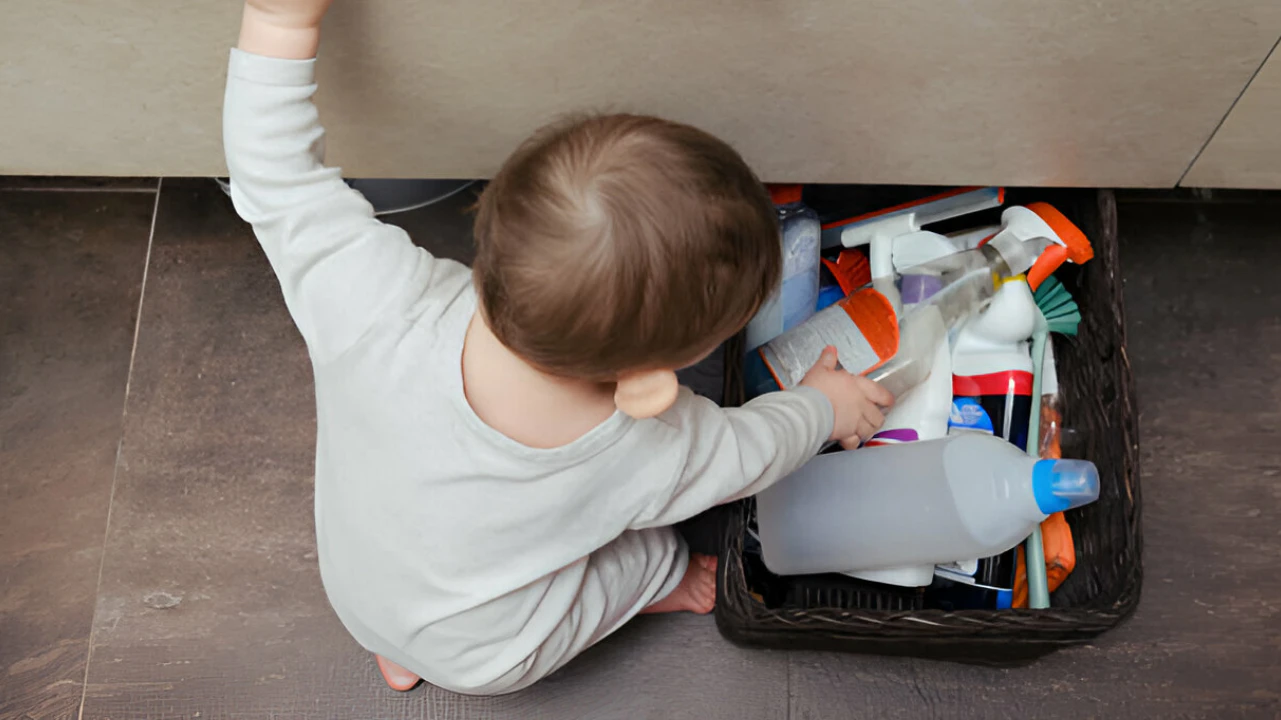

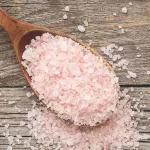

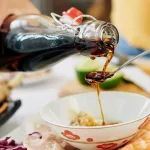

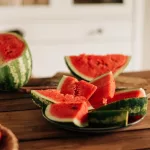
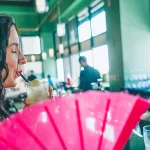





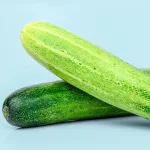
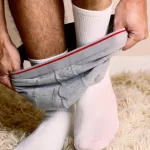
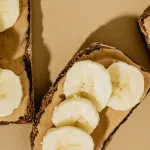
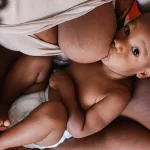
Leave a Reply
You must be logged in to post a comment.